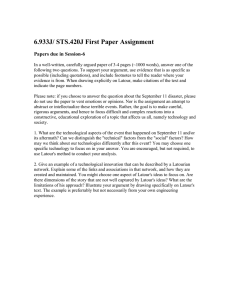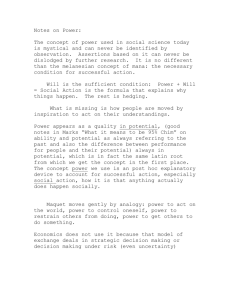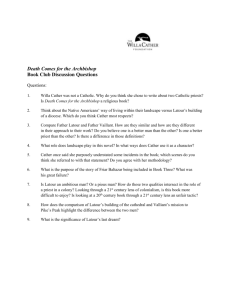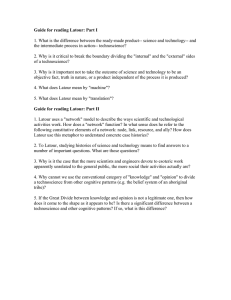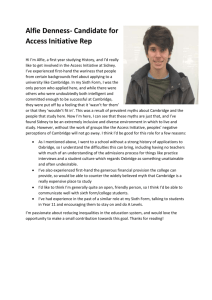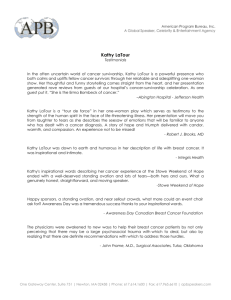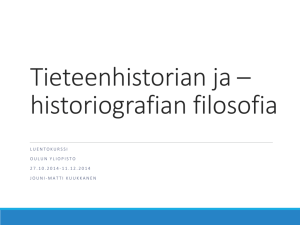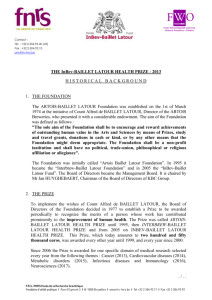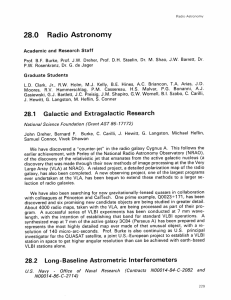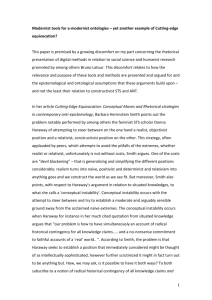here - DASTS
advertisement
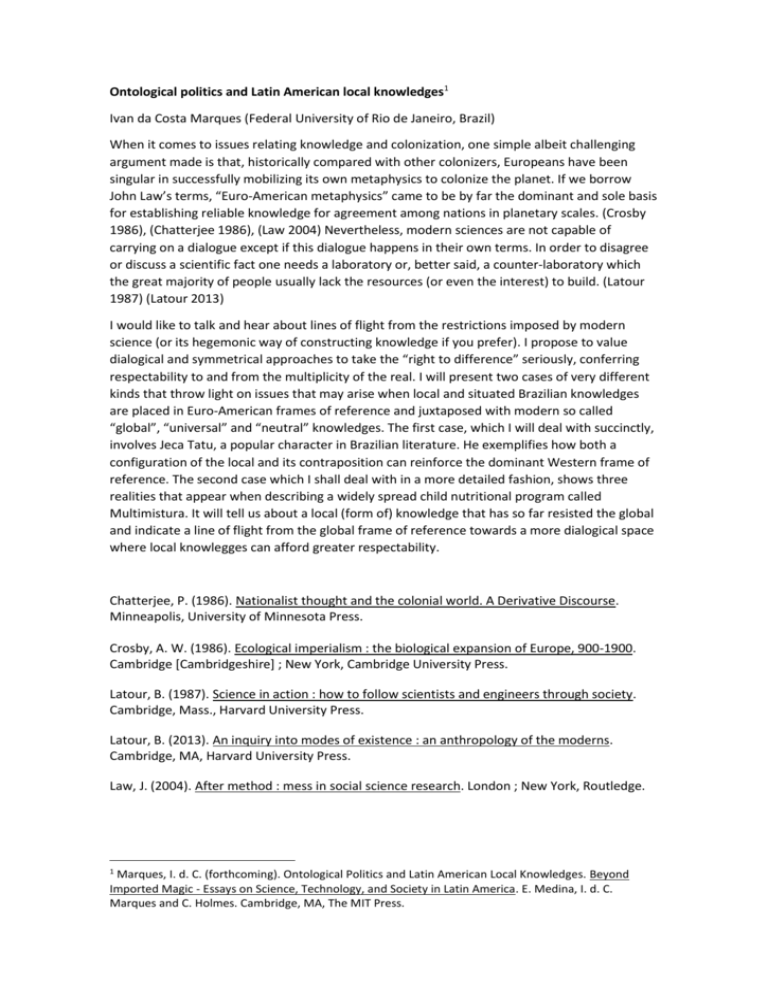
Ontological politics and Latin American local knowledges1 Ivan da Costa Marques (Federal University of Rio de Janeiro, Brazil) When it comes to issues relating knowledge and colonization, one simple albeit challenging argument made is that, historically compared with other colonizers, Europeans have been singular in successfully mobilizing its own metaphysics to colonize the planet. If we borrow John Law’s terms, “Euro-American metaphysics” came to be by far the dominant and sole basis for establishing reliable knowledge for agreement among nations in planetary scales. (Crosby 1986), (Chatterjee 1986), (Law 2004) Nevertheless, modern sciences are not capable of carrying on a dialogue except if this dialogue happens in their own terms. In order to disagree or discuss a scientific fact one needs a laboratory or, better said, a counter-laboratory which the great majority of people usually lack the resources (or even the interest) to build. (Latour 1987) (Latour 2013) I would like to talk and hear about lines of flight from the restrictions imposed by modern science (or its hegemonic way of constructing knowledge if you prefer). I propose to value dialogical and symmetrical approaches to take the “right to difference” seriously, conferring respectability to and from the multiplicity of the real. I will present two cases of very different kinds that throw light on issues that may arise when local and situated Brazilian knowledges are placed in Euro-American frames of reference and juxtaposed with modern so called “global”, “universal” and “neutral” knowledges. The first case, which I will deal with succinctly, involves Jeca Tatu, a popular character in Brazilian literature. He exemplifies how both a configuration of the local and its contraposition can reinforce the dominant Western frame of reference. The second case which I shall deal with in a more detailed fashion, shows three realities that appear when describing a widely spread child nutritional program called Multimistura. It will tell us about a local (form of) knowledge that has so far resisted the global and indicate a line of flight from the global frame of reference towards a more dialogical space where local knowlegges can afford greater respectability. Chatterjee, P. (1986). Nationalist thought and the colonial world. A Derivative Discourse. Minneapolis, University of Minnesota Press. Crosby, A. W. (1986). Ecological imperialism : the biological expansion of Europe, 900-1900. Cambridge [Cambridgeshire] ; New York, Cambridge University Press. Latour, B. (1987). Science in action : how to follow scientists and engineers through society. Cambridge, Mass., Harvard University Press. Latour, B. (2013). An inquiry into modes of existence : an anthropology of the moderns. Cambridge, MA, Harvard University Press. Law, J. (2004). After method : mess in social science research. London ; New York, Routledge. 1 Marques, I. d. C. (forthcoming). Ontological Politics and Latin American Local Knowledges. Beyond Imported Magic - Essays on Science, Technology, and Society in Latin America. E. Medina, I. d. C. Marques and C. Holmes. Cambridge, MA, The MIT Press.
